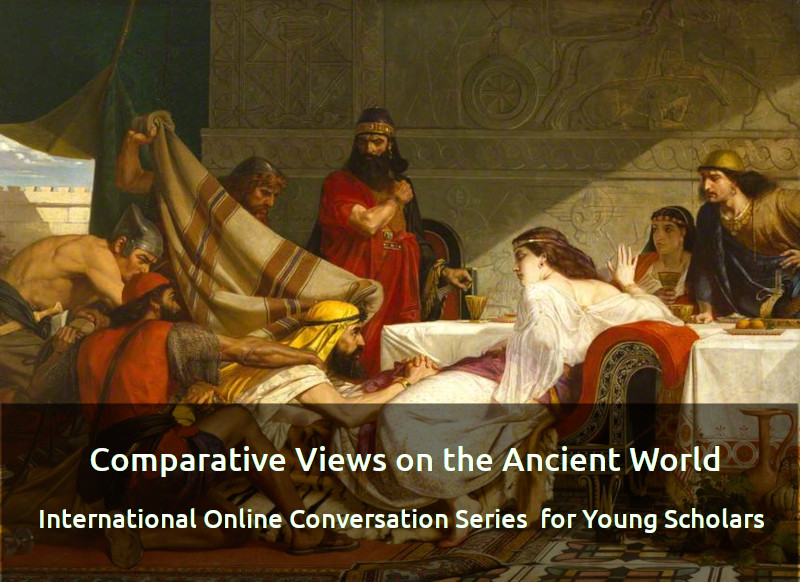 › EVENTS › Diaspora Jews in the Royal Court: The Feast of Ahasuerus and Persian Kingship
› EVENTS › Diaspora Jews in the Royal Court: The Feast of Ahasuerus and Persian Kingship
 6 October 2023 (California) / 7 October 2023 (China)
6 October 2023 (California) / 7 October 2023 (China)
This joint lecture shall discuss the Royal banquet in both its Biblical and Achaemenid contexts, and demonstrate that, by combining Iranian Studies and Biblical Studies perspectives, the Book of Esther can tell us far more than it could from each on its own.

Abstract:
The book of Esther is set in the Achaemenid Persian Empire. The motif of the banquet is the rhythm of the book of Esther, with the narrative structure revolving around ten feasts. The ups and downs of the Jewish diaspora mainly unfold through these ten banquets, which reflect the uncertainty of diaspora existence in a world dominated by Persian power. At the same time, the narrative structure, with its reversal of the traditional order, reveals the living hope of diaspora Jews as a minority group in the Persian Empire.
In addition to this, despite being an imaginary “court tale”, the Book of Esther displays a deep knowledge of the functioning of the Persian court, and many details of historical interest. Banquets were a central part of Achaemenid royal ideology and Ancient Near Eastern kingship, and demonstrated the power of the Persian Empire. Moreover, there were many important Jewish communities throughout the Achaemenid empire, with some of their members rising to important stations in the administration.
Finally, the court, as a place where access to the king was strictly controlled, gave great power to those with the king’s ear, including groups traditionally considered ‘subordinate’, such as non-Persian royal favourites and women.
In this joint lecture, we shall discuss the Royal banquet in both its Biblical and Achaemenid contexts, and demonstrate that, by combining Iranian Studies and Biblical Studies perspectives, the Book of Esther can tell us far more than it could from each on its own.
Speakers introduction:
Charles Howley is a second year PhD student in Iranian Studies program at UCLA. He completed his BA in Literae Humaniores at the University of Oxford, where he first gained an interest in Achaemenid Persia, writing an Optional Thesis on the Elephantine Papyri, and learning both Old Persian and Imperial Aramaic over Zoom alongside his studies. He then completed an MSt in Oriental Studies, also at Oxford, co-supervised by Professors Peter Thonemann and Yuhan Vevaina. His interests centre on Gender, Sexuality and Religion at the Achaemenid court, links between Mesopotamian and Achaemenid religious and courtly traditions, and the religious and social roles of eunuchs in Achaemenid courtly culture.
WU Yingjie is a PhD candidate of Jewish Studies at Sun Yat-sen University in Guangzhou. She has completed her studies in classical Hebrew and classical Greek. Her principle interests of research include the Hebrew Bible, especially Jewish biblical exegesis and Jewish thought.


